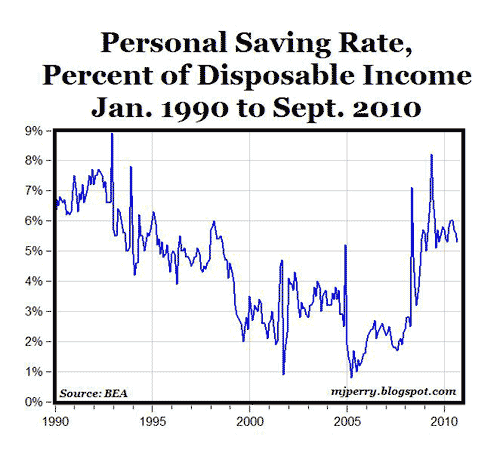
A senior CNN writer cooked up quite “a stew of errors, misunderstandings, and non sequiturs” (to quote Don Boudreaux referring to another recent “trade stew”) about trade imbalances in an article titled “The Trouble With ‘Global Imbalances‘.” Don responded here to this example of the “hysteria stirred up by the incessant barrage of uninformed reporting about trade and trade deficits.”
One theme of the CNN article of “global imbalances” is that Americans “overspend” and “overconsume,” and this consumer profligacy allegedly contributes to the “global imbalances.” Here are some excerpts:
“The real problem is overspending by U.S. consumers, and not enough spending by consumers in some of those other markets.
“The bottom line is we overconsume,” said Diane Swonk, chief economist at Mesirow Financial. “What [rebalancing] means is fundamentally changing what we’re doing. It’s going to be painful.”
How to reduce that overconsumption by Americans, and how to spur spending by consumers in emerging economies such as China and India is not easy, according to economists.”
MP: The chart above of the U.S. personal savings rate shows that Americans having been saving between 5-6 percent of disposable personal income in every month for the last two years, and that’s the highest level of savings since the mid-1990s. With Americans now saving at the highest rates in 15 years, can there really be a problem with “overspending by U.S. consumers?” If there is a problem in the U.S. of “overspending,” it’s not the millions of consumers who are to blame, it’s probably gotta be that other group – the one that has 535 members.
Disclaimer: This page contains affiliate links. If you choose to make a purchase after clicking a link, we may receive a commission at no additional cost to you. Thank you for your support!


Leave a Reply